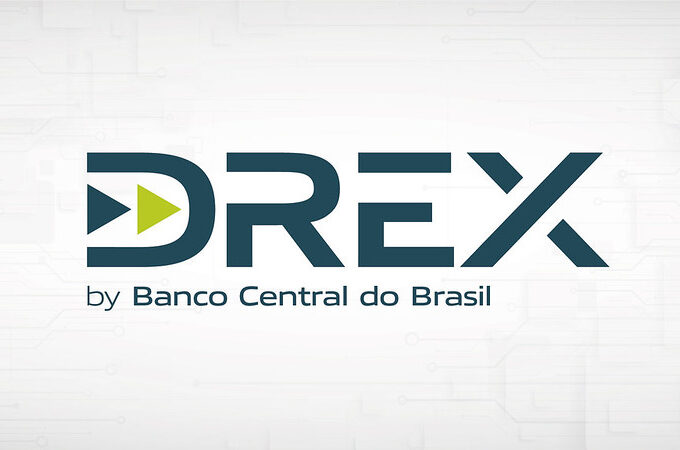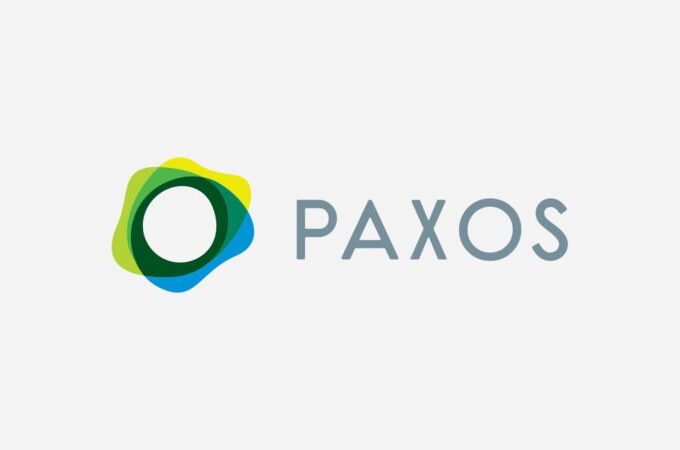
Blockchain: The Modern-Day Secret Weapon, What The Financial Services And Fintech Industries Can Learn From Each Other
The financial sector is no stranger to change. In fact, it’s an industry that has had to adapt to new technologies and trends for centuries. From the introduction of paper money to the shift from the gold standard to fiat currency, the financial sector has always had to be on the cutting edge. And now, it seems as though the industry is on the cusp of yet another revolution: blockchain and cryptocurrency.
As we all know, the finance industry is one of the most important industries in the world. It’s responsible for handling our money, investing it, and keeping it safe. And while there have been many advancements in the finance industry over the years, blockchain is by far one of the most game-changing technologies to come onto the scene.
What is Blockchain?
The term “blockchain” is often used interchangeably with “cryptocurrency” or “bitcoin,” but the technology actually has a much broader range of applications. At its simplest, a blockchain is a distributed database that allows for secure, transparent, and immutable recordkeeping.
In the financial services industry, blockchain has the potential to streamline processes, reduce costs and improve security. For example, banks could use blockchain to settle cross-border payments more quickly and efficiently. The technology could also be used to create digital identities that could be used to verify customer identity and prevent fraud.
In the fintech sector, meanwhile, startups are using blockchain to develop new products and services. For example, there are now a number of companies offering “decentralized exchanges” that allow users to trade cryptocurrencies without having to go through a central authority. There are also startups working on developing blockchain-based solutions for payments, lending, and other financial services.
So far, the financial services industry has been largely dismissive of fintech companies and their innovative use of blockchain. But if they want to stay ahead of the curve, they need to start paying attention. By collaborating with fintech firms, they can learn from each other and create better products and services for customers.
The Different types of Blockchain
There are three different types of blockchains:
- Public
- Private
- Hybrid
Public blockchains are decentralized and allow anyone to access the network and participate in the consensus process. Bitcoin is an example of a public blockchain.
Private blockchains are permissioned and require an invitation to join. Participants must be known and trusted by the network administrators. Ethereum Enterprise Alliance is an example of a private blockchain.
Hybrid blockchains are a combination of public and private networks. They offer the flexibility of both models and are often used in consortiums or federations. R3CEV is an example of a hybrid blockchain.
What are the benefits of Blockchain?
The benefits of blockchain are numerous and varied. For the financial services industry, blockchain can provide a secure, tamper-proof ledger for tracking transactions and ownership of assets. This could potentially streamline back-office operations and reduce costs. For fintech startups, blockchain can provide a way to build trust with customers and partners without having to go through traditional financial institutions.
Blockchain can also help to level the playing field for small businesses and individuals who may not have access to traditional banking services. By using blockchain-based platforms and applications, they can conduct transactions and access financial services without having to go through a bank or other intermediary.
In addition to the potential cost savings and operational efficiencies that blockchain can offer, it also has the potential to revolutionize how we interact with the digital world more broadly. For example, by creating a decentralized identity platform built on blockchain technology, we could give individuals more control over their personal data. This could have far-reaching implications for everything from online privacy to combating fraud.
How can Blockchain be used in the financial services industry?
There is no question that blockchain has the potential to revolutionize the financial services industry. The technology offers a secure, decentralized way to record and store data that can be used to facilitate transactions between parties. While there are still many challenges to overcome before blockchain can be widely adopted by the financial services sector, there are a number of ways that the technology can be used to improve efficiency and reduce costs.
- One area where blockchain could have a major impact is in the area of cross-border payments. Currently, international payments can take days or even weeks to clear due to the need to go through multiple intermediaries. With blockchain, however, payments could be settled in near real-time as there would only be one centralized ledger that all parties would have access to. This would greatly reduce the time and costs associated with making international payments.
- Another potential use case for blockchain in the financial services industry is in the area of KYC (know your customer) compliance. Currently, financial institutions must go through a lengthy and costly process to verify the identity of their customers. With blockchain, however, each customer’s identity could be verified using a digital ID stored on the ledger. This would not only save time and money, but it would also help to prevent fraud and money laundering.
Overall, there are many potential use cases for blockchain in the financial services industry. While adoption will likely take some time, there is no doubt that the technology has the potential to disrupt many aspects of the sector
How can financial services and fintech industries learn from each other?
In a rapidly changing digital world, it’s more important than ever for financial services and fintech companies to stay ahead of the curve. One way to do this is by learning from each other.
The financial services industry has a lot to learn from the fintech industry when it comes to innovation and adapting to change. For example:
- Fintech companies are often quicker to adopt new technologies, such as blockchain. They are also more nimble and agile, which allows them to respond quickly to changes in the market or customer needs.
- In turn, the fintech industry can learn from the financial services industry when it comes to regulation and compliance. The financial services industry is heavily regulated, which can make it difficult for fintech companies to enter the market. However, by understanding the regulatory landscape, fintech companies can develop products and services that meet the needs of both regulators and consumers.
- Ultimately, both industries can benefit from working together. By sharing knowledge and ideas, they can help each other stay ahead of the curve in an ever-changing digital world.
How can Blockchain be used in the fintech industry?
The fintech industry is taking advantage of the unique properties of blockchain technology to create new and innovative products and services. Blockchain provides a secure, decentralized ledger that can be used to track transactions and ownership of assets. This makes it an ideal platform for developing new financial applications.
Blockchain-based fintech applications are already being developed and deployed. These include digital currencies, peer-to-peer lending platforms, and decentralized exchanges. By using blockchain, these applications can offer significant advantages over traditional financial services.
Digital currencies are one area where blockchain is being used to create new possibilities. Bitcoin, the first and most well-known cryptocurrency, uses blockchain to track ownership of units of the currency. This allows for secure and transparent transactions without the need for a central authority or third party such as a bank.
Other fintech applications are also being built on blockchain. These include peer-to-peer lending platforms that connect borrowers with lenders without the need for a bank or other financial institution. Decentralized exchanges are another type of fintech application that allows users to trade cryptocurrencies or other assets directly with each other, without the need for a central exchange.
Blockchain offers many benefits for the fintech industry, including increased security, transparency, and efficiency. As more applications are developed, we will likely see even more innovation in the way financial services are delivered.
What are the challenges of Blockchain?
The challenges of Blockchain are many and varied, but they can be boiled down to three key areas: scalability, privacy, and governance.
- Scalability is perhaps the most well-known challenge facing Blockchain. The problem is that as more people use the system, it becomes slower and more cumbersome. This is due to the fact that each transaction must be verified by every node on the network, which takes time and processing power. There are a number of proposed solutions to this problem, but as yet none have been proven to be wholly effective.
- Privacy is another big challenge for Blockchain. Because all transactions are public, there is a risk that sensitive data could be exposed. This has led some businesses to shy away from using Blockchain for fear of data breaches.
- Governance is also an issue with Blockchain. Because it is decentralized, there is no central authority controlling how it operates. This can lead to problems such as forks (when the same transaction is recorded on multiple blockchains) and 51% attacks (when a single entity controls more than half of the network).
The potential of Blockchain
The potential of Blockchain is vast. For the financial services and fintech industries, it could mean more efficient, secure, and cost-effective operations. It could also lead to new business models and opportunities for collaboration.
However, there are still some key challenges that need to be addressed before Blockchain can truly reach its potential. These include scalability, interoperability, and governance.
With the right investment and collaborative effort, Blockchain can unlock a world of possibilities for the financial services and fintech industries.
The Future of Blockchain
There is no doubt that blockchain technology is here to stay. The question is, what will the future of blockchain look like?
This is a difficult question to answer, as there are many potential applications for blockchain technology. However, there are a few potential scenarios that stand out as being particularly likely.
- One scenario is that blockchain will become the backbone of a new global financial system. This would involve the use of digital currencies and smart contracts to facilitate transactions between parties all around the world.
- Another possibility is that blockchain will be used to create new types of financial instruments and products. For example, we could see the creation of tokenized securities or even whole new cryptocurrency exchanges.
- Finally, it’s also possible that blockchain will simply become a more efficient way of doing things that are already being done. This could involve the use of blockchain-based KYC/AML solutions or the streamlining of back-office processes.
Whatever the future holds, it’s clear that blockchain technology is set to have a big impact on the financial services industry. Fintech companies would be wise to keep an eye on developments in this area, as they may be able to benefit from integrating blockchain into their own products and services.
Conclusion
The financial services and fintech industries have a lot to learn from each other when it comes to blockchain. Blockchain has the potential to revolutionize both industries, but only if they’re willing to work together. We hope that this article has shed some light on the potential benefits of collaboration between these two industries and encourage both sides to explore the possibilities further.
Other sources:





